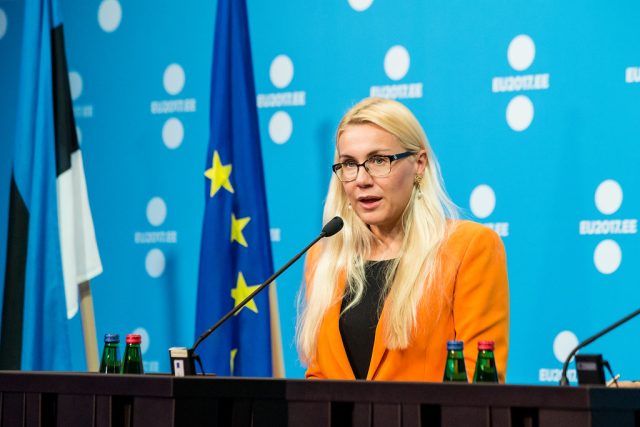
The European Union considers Algeria as an alternative to Russian gas. The war with Ukraine has produced a crisis in the whole community territory. In this context, the EU-27 are looking for solutions to the situation and are looking ambitiously to the hydrocarbons of the Maghreb country. The EU’s position in recent weeks has been to strengthen Algerian gas exports.
The European Union is Algeria’s main trading partner, having accounted for 46.7% of total Algerian transactions in 2019. Brussels wants to work on establishing a framework that could become stable for investments, as well as favoring the purchase of Algerian gas in the future, for all European gas companies, posing the next decade as a deadline.
“We are long-standing partners and we would both benefit from increasing the volumes of Algerian gas potentially available for export to Europe. This increase could be achieved in cooperation with European companies by tapping into new gas fields,” said European Energy Commissioner Kadri Simson at her meeting in October with Energy and Mines Minister Mohamed Arkab in Algiers.
Europe is ready, Simson said, to “mobilize significant funding” for the sustainability of cooperation between Brussels and Algiers, “from the European Development Fund for sustainability in cooperation with our development banks,” citing the European Investment Bank and the European Bank for Reconstruction and Development as examples.
Simson stated that the negotiations on this sector are “a win-win cooperation for both territories. Algeria has always been a reliable gas supplier and Europe is its main market”. In the same vein, Algeria’s main state-owned oil and gas company, Sonatrach, announced that it will double its production by the end of the year. Algerian production last year stood at 100 billion cubic meters, and the Algerian government plans want to reach 106 billion cubic meters by next year. What the company and the EU have not taken into account is that Algeria’s domestic consumption of crude oil is increasing every year, and the country should ensure that its infrastructure is capable of supplying gas within its borders while strengthening its exports.
Europe is not only looking to boost cooperation on gas exports but has also focused on increasing renewable energy, with a focus on solar and wind. In addition, the European Commissioner for Energy also announced a “possible EU-Algeria hydrogen partnership”, which could allow the development of production, consumption, and trade of “renewable hydrogen and derivatives”, to mobilize Algerian exports of green hydrogen. However, Brussels should consider whether it wants to continue to supply itself with gas in the future, so as not to invest large amounts of financing in infrastructures that will not be useful in the long term, given that new fuels have been proposed, following the reticence of Paris regarding the transport of crude oil on its territory.
In line with the negotiations between the EU-27 and Algeria, the situation of the Maghreb country’s diplomatic relations with Spain, a geostrategic enclave in terms of gas and one of the gateways to Europe, along with Italy, cannot be ignored. After the rupture of relations due to the position taken by the government of Pedro Sánchez on Western Sahara, Algeria left the door open for Madrid to take a position in the European negotiations. The latter did so by guaranteeing Algerian gas despite the “discord” in the context in which Sanchez is trying to reach an agreement with France to replace the MidCat pipes with the Bar-Mar infrastructures.



 Subscribe
Subscribe